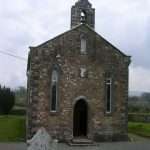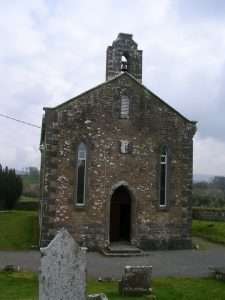Sermon for Sunday, 14th May 2017 (Fifth Sunday of Easter)
“Do not let your hearts be troubled. Believe in God, believe also in me”. John 14:1
Why should we not be troubled? Why should we be reassured by what Jesus say? A house, a place, and a way help us to think about what Jesus is saying to us.
“In my Father’s house,” says Jesus in Saint John Chapter 14 Verse 2. The word John uses to record the words of Jesus is “oikia,” it is the word for an ordinary household. It gives us a very different picture from words like “kingdom” or “heaven,” instead of suggesting that God’s dwelling place is a vast, impersonal place, “house” gives us a picture that suggests something warm and welcoming. When we think of a house we think of somewhere with a door where someone will meet us; we think of a householder welcoming guests; we think of friendly faces in the rooms. This is a big house, says Jesus, for “there are many dwelling-places.” There is space for everyone who wants to be there, plenty of room for guests who accept the invitation.
“In my Father’s house,” what picture does that give us of God? It creates images of God as a genuinely fatherly figure, as someone waiting to hug his children as they arrive home. It gives us a picture of God very far removed from the remote and terrifying figure in the Old Testament. Is this how we see God, as someone standing at the door of his house?
God’s house is a place where God waits for us. Verses 2-3 say, “If it were not so, would I have told you that I go to prepare a place for you? And if I go and prepare a place for you, I will come again and will take you to myself, so that where I am, there you may be also.” Jesus speaks to the disciples in a personal way, “for you,” he says. Jesus is saying to them that the place in God’s house comes not from belonging to a particular people, tribe or nation, it comes not from the faith into which they have been born, it comes from accepting his invitation to join him in that house. This would have been disturbing to the people who were attached to the old traditions; this would have gone against their beliefs that being part of God’s covenant people meant they would have a place with God. Jesus is challenging all that people had believed about their faith.
“A place for you” is a challenge to us. Jesus speaks to us personally. He doesn’t ask, “how does your church respond? He doesn’t ask, “how does your family respond?” He asks, “how do you respond?” This place is being offered to us for us to accept, or reject, no-one else can accept our place for us. If Jesus has prepared a place for us, what does it say about our attitude toward him if we do not choose to accept that place? How do we see Jesus?
A house, a place and a way. Jesus is enigmatic in Verse 4, he tells the disciples, “And you know the way to the place where I am going.” The ever pragmatic Thomas asks the question that the other disciples would have been thinking, “Lord, we do not know where you are going. How can we know the way?’” The reply that Jesus gives has become one of the best known verses of Scripture, “I am the way, and the truth, and the life. No one comes to the Father except through me.” Jesus is the way; it is an entirely new way of understanding faith. Following Jesus is not about a religion with all its rules, it is about a relationship with him. The disciples would have learned over the time that they had spent with him that following Jesus was not about being part of a religious tradition, it was about a whole way of life. When Jesus said, “I am the way” he is saying that the old ways are past, that there is now only one way.
“I am the way,” challenges us about our own faith. Do we see Jesus in the way he teaches his disciples, as the only way to reach the place prepared for us in God’s house, or do we see Jesus as an option, someone whom we can take or leave as we please? How seriously do we take Jesus if we ignore his claim that he is the way, the truth, and the life? CS Lewis once suggested that Jesus was mad or he was bad or he was God. If we do not believe Jesus to be the way, the truth and the life, are we saying that he was mad or that he was bad, because, given the claim that Jesus was making, there are no other options.
A house, a place, and a way, challenges to us about our own faith.



Comments
Sermon for Sunday, 14th May 2017 (Fifth Sunday of Easter) — No Comments
HTML tags allowed in your comment: <a href="" title=""> <abbr title=""> <acronym title=""> <b> <blockquote cite=""> <cite> <code> <del datetime=""> <em> <i> <q cite=""> <s> <strike> <strong>